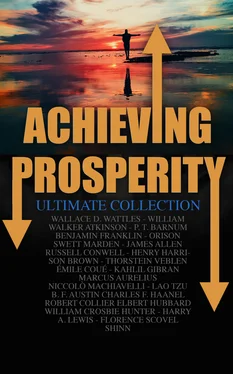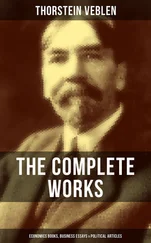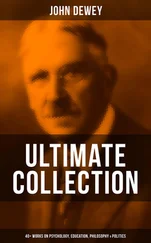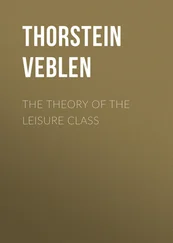I need not say that his fifty-four dollars was all counterfeit money. When he went next morning, after endeavoring in vain to part with his new funds, to find the place where he had been humbugged, it was close shut, and he could hardly identify even the doorway. He went to the police, and the shrewd captain told him that it was a difficult business; but sent an officer with him to look up the rascals. Officer found one; demanded redress; clergyman did the same. Rascal asked clergyman’s name; got it; told him he could prosecute if he liked. Clergyman looked at officer; officer, with indifference, observed:
“Means to stick your name in the papers.”
Clergyman said he would take further advice; did take it; thought he wouldn’t be shown up as a “greeny” in the police reports; borrowed money enough to get home with, and if he has a gold watch now—which I really hope he has—got it either for its real value, or as a “testimonial.”
There, that (with many variations) is the whole story of Peter Funk. These “mock auctioneers,” sometimes, as in the case I have mentioned, take advantage of the respectability of their victims, sometimes of their haste to leave the city on business. When they could not possibly avoid it, they disgorged their prey. No instance is known to me of any legal penalty being inflicted on them by a magistrate; but they were always, until 1862, treated by police, by magistrate, and by mayor, just as thieves would be who should always be let off on returning their stealings; so that they could not lose by thieving, and might gain.
These rascally mock-auctioneers, thus protected by the authorities, used to fleece the public out of not less than sixty thousand dollars a year. One of them cleared twelve thousand dollars during the year 1861 alone. And this totally shameless and brazen-faced humbug flourished in New York for twenty-five years!
About the first day of June, 1862, the Peter Funks had eleven dens, or traps, in operation in New York; five in Broadway below Fulton street, and the others in Park row, and Courtlandt, Greenwich, and Chatham streets.
The name, Peter Funk, is said to have been that of the founder of their system; but I know nothing more of his career. At this date, in 1862, the system was in a high state of organization and success, and included the following constituents:
1. Eight chief Funks, or capitalists, and managers, whose names are well enough known. I have them on record.
2. About as many more salesmen, who took turns with the chiefs in selling and clerking.
3. Seventy or eighty, rank and file, or ropers-in. These acted the part of buyers, like the purchaser whose delight over his watch helped to deceive the minister and the other bidders on that occasion. These fellows dressed up as countrymen, sailors, and persons of miscellaneous respectability. They bid and talked when that was sufficient, or helped the managers thrash any troublesome person, if necessary. Once in a long time they met their match; as, for instance, when the mate of a ship brought up a squad of his crew, burst into one of their dens, and beat and battered up the whole gang within an inch of their lives. But, in most cases, the reckless infamy of these dregs of city vice gave them an immense advantage over a decent citizen; for they could not be defiled nor made ridiculous, and he could.
4. Two or three traders in cheap jewelry and fancy-goods supplied the Funks with their wares. One of these fellows used to sell them fifty or a hundred dollars’ worth of this trash a day; and he lamented as much over their untimely end as the Ephesian silversmiths did over the loss of their trade in shrines.
5. A lawyer received a regular salary of $1,200 a year to defend all the Funk cases.
6. The city politicians, in office and out of it, who were wont to receive the aid of the Funks (a very energetic cohort) at elections, and who in return unscrupulously used both power and influence to keep them from punishment.
All this cunning machinery was brought to naught and New York relieved of a shame and a pest by the courage, energy, perseverance, and good sense of one Yankee officer—Russell Wells, a policeman. Mr. Wells took about six months to finish up his work. He began it of his own accord, finding that the spirit of the police regulations required it; prosecuted the undertaking without fear or favor, finding not very much support from the judicial authorities, and sometimes actual and direct discouragement. His method was to mount guard over one auction shop at a time, and warn all whom he saw going in, and to follow up all complaints to the utmost until that shop was closed, when he laid siege to another. Various offers of money, direct and indirect, were made him. One fellow offered him $500 to walk on the other side of the street. Another offered him $1,000 to drop the undertaking. Another hinted at a regular salary of hush-money, saying “he had now got these fellows where he could make as much out of them as he wanted to, right along.”
Sometimes they threatened him with “murder and sudden death.” Several times they got out an injunction upon him, and several times sued him for slander. One of their complaints charged, with ludicrous hypocrisy, that the defendant, “with malicious intent, stood round the door uttering slanderous charges against the good name, fame, and credit of the defendant,” just as foolish old lawyers used to argue that “the greater the truth the greater the libel.” Sometimes they argued and indignantly denounced. One of them told him, “he was a thief and a murderer, driving men out of employment whose wives and children depended on their business for support.”
Another contended that their business was just as fair as that of the stock-operators in Wall street. I fear that wasn’t making out much of a case.
But their threats were idle; their suits, and prosecutions, and injunctions, never came to a head; their bribes did not operate. The officer, imperturbably good-natured, but horribly diligent, watched, and warned, and hunted, and complained, and squeezed back their money at the rate of $500 or $1,000 every month, until they were perfectly sickened. One by one they shut up shop. One went to his farm, another to his merchandise, another to emigrant running, another (known by the elegant surname of Blur-eye Thompson) to raising recruits, several into the bounty jumping business.
Such was the life and death of an outrageous humbug and nuisance, whose like was not to be found in any other city on earth; and would not have been endured in any except this careless, money-getting, misgoverned one of New York.
Table of Contents
LOTTERY SHARKS.—BOULT AND HIS BROTHERS.—KENNETH, KIMBALL AND COMPANY.—A MORE CENTRAL LOCATION WANTED FOR BUSINESS.—TWO SEVENTEENTHLIES.—STRANGE COINCIDENCE.
I have before me a mass of letters, printed and lithographed circulars, and the like, which illustrate well two or three of the most foolish and vicious swindles [it is wrong to call them humbugs] now extant. They also prove that there are a good many more fools alive in our Great Republic than some of us would like to admit.
These letters and papers are signed, respectively, by the following names: Alexander Van Dusen; Thomas Boult & Co.; E. F. Mayo; Geo. P. Harper; Browne, Sherman & Co.; Hammett & Co.; Charles A. Herbert; Geo. C. Kenneth; T. Seymour & Co.; C. W. White, Purchasing Agency; C. J. Darlington; B. H. Robb & Co.; James Conway; S. B. Goodrich; Egerton Brothers; C. F. Miner; E. J. Kimball; E. A. Wilson; and J. T. Small.
All these productions, with one or two exceptions, are dated during the last three months of 1864, and January 1865. They are mailed from a good many different places, and addressed to respectable people in all directions.
Читать дальше












